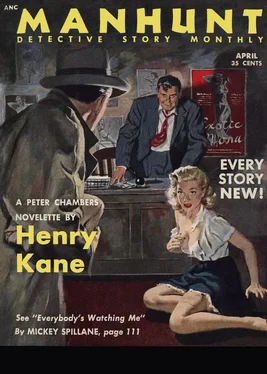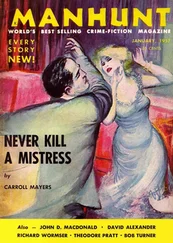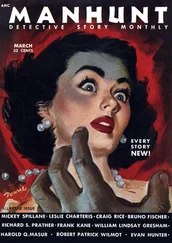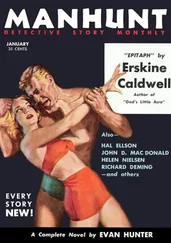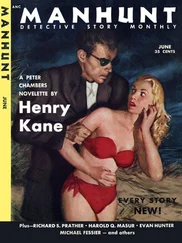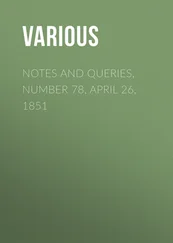Roy Carroll - Manhunt. Volume 1, Number 4, April, 1953
Здесь есть возможность читать онлайн «Roy Carroll - Manhunt. Volume 1, Number 4, April, 1953» весь текст электронной книги совершенно бесплатно (целиком полную версию без сокращений). В некоторых случаях можно слушать аудио, скачать через торрент в формате fb2 и присутствует краткое содержание. Город: New York, Год выпуска: 1953, Издательство: Flying Eagle Publications, Жанр: Детектив, на английском языке. Описание произведения, (предисловие) а так же отзывы посетителей доступны на портале библиотеки ЛибКат.
- Название:Manhunt. Volume 1, Number 4, April, 1953
- Автор:
- Издательство:Flying Eagle Publications
- Жанр:
- Год:1953
- Город:New York
- ISBN:нет данных
- Рейтинг книги:3 / 5. Голосов: 1
-
Избранное:Добавить в избранное
- Отзывы:
-
Ваша оценка:
- 60
- 1
- 2
- 3
- 4
- 5
Manhunt. Volume 1, Number 4, April, 1953: краткое содержание, описание и аннотация
Предлагаем к чтению аннотацию, описание, краткое содержание или предисловие (зависит от того, что написал сам автор книги «Manhunt. Volume 1, Number 4, April, 1953»). Если вы не нашли необходимую информацию о книге — напишите в комментариях, мы постараемся отыскать её.
Manhunt. Volume 1, Number 4, April, 1953 — читать онлайн бесплатно полную книгу (весь текст) целиком
Ниже представлен текст книги, разбитый по страницам. Система сохранения места последней прочитанной страницы, позволяет с удобством читать онлайн бесплатно книгу «Manhunt. Volume 1, Number 4, April, 1953», без необходимости каждый раз заново искать на чём Вы остановились. Поставьте закладку, и сможете в любой момент перейти на страницу, на которой закончили чтение.
Интервал:
Закладка:
Kroner looked hurt. “Friendship touches me. It means more than jewels to me. I’m thinking only of your welfare and I beg you to take my advice. Go up to your room and stay there. And tomorrow, if I can manage it, you’ll be on a boat.”
Clayton wasn’t listening. He was reaching toward the wide pocket of his jacket and feeling the bulk of the revolver. His fingers went up along the short barrel, onto the chamber and past the trigger-guard and finally grasped the thick butt. Then he let go of the revolver and took his hand from the pocket. He looked to see if his hand was shaking. He saw that his fingers were steady. He said, “The eyes always tell the truth.” And then, slowly and softly, “I’m going out for a walk. I want to take a look at something.”
He moved away from the bar, heading toward the door leading to the street. When he arrived at the door, Kroner was there to block his path. The Dutchman was a wide thick wall of beef, the arms spread out, the fat face glimmering with sweat.
“My friend—” Kroner pleaded.
Clayton smiled wearily. “You’re in my way.”
“My very dear friend,” Kroner said. “Please try to be logical. If you walk out of here, you’ll be playing into Hagen’s hands. His men are posted all along the waterfront, waiting for you—”
Clayton went on smiling, his eyes aiming past the Dutchman and focused on the door.
“Please,” Kroner said thickly. “The important thing is to stay alive.”
Then they were looking at each other and Clayton was saying, “I don’t have time to write out a will. But if I don’t come back, the sapphire belongs to you. You’ll find it in a cardboard box stuffed in the head-side of the mattress.”
He took a step toward the door. Kroner did not budge. Kroner said, “I’m very sorry, but I cannot allow you to leave.”
Clayton shrugged. And he sighed. Then rather gently he pushed at Kroner’s chest with his left hand, chopped short and hard with his right and caught the Dutchman on the jaw. Kroner sagged and went to the floor, stretched out prone and motionless.
Clayton opened the door and walked out. He was met with a flood of very hot and syrupy air coming in from the Indian Ocean.
Lights blinked against the oily black surface of the Colombo harbor. On the waterfront it was quiet except for the steady lapping of little waves coming in to caress the docks. Clayton moved close to the piers, his head working like something in a socket, his eyes studying the darkness that seemed to revolve around him.
Then he was in a narrow alley between a splintered pier and the thick concrete walls of a British cotton warehouse. He came out of the alley and started a turn that would take him toward Hagen’s private office. There was a light in the window, and the light seemed to beckon and he hurried forward. He’d taken only a few footsteps when he heard the sound behind him.
He pivoted and stared and saw them. Two of them. They were coming in fast, and as they came closer he saw the mashed noses and thick lips of dock ruffians who made their living with their muscles and their twisted brains. One of them had a knife and the other carried a short club. Clayton took the gun out of his pocket, released the safety catch and aimed the gun and then decided to try it without bullets. The bullets would make too much noise. It would bring Hagen and his men out of the office, and that would ruin it. He told himself he hadn’t come here to fight or kill, but just to learn something, to prove something to himself.
The thugs hadn’t seen the gun, they were concentrating on their own target. As they lunged, Clayton sidestepped and brought the gun-butt crashing against the skull of the man nearest him. The man went down like a toppled statue. The other man let out a curse and forgot Hagen’s orders not to use the knife for killing, and slashed the blade toward Clayton’s throat. Clayton stepped back, wielding the gun so that the butt hit the man’s wrist. There was the cracking sound of splintered bone. The man opened his mouth to yell, and Clayton rushed in and used the gun like a hammer on the man’s mouth. The man went to his knees, spitting blood and teeth and choking on more blood. Clayton gave him a rap on the temple that knocked him flat and put him to sleep.
The sign above the lit window read Rudolph Hagen Co., Ltd. Under the printed words there was a painted symbol of a jeweler’s eye-piece, framed in the curving lines of elephant-tusks. This meant that Rudy Hagen was a dealer in gems and ivory and any kind of treasure he could-get his hands on. Hagen had extremely large hands and Clayton was looking at them now.
He was crouched at the wall and looking through the window and focusing on Hagen’s hands resting on a teakwood table. The thick fingers were stretched, showing the two rings, a large cat’s eye and a larger opal. Clayton studied the hands for some moments, and then his gaze went up to the face.
Hagen had brutish good looks, the heavy features well-shaped and balanced, the light brown hair thick and neatly brushed. He was a tall stoutish man in his early forties, in splendid physical condition except for the red complexion that told of too much drinking. He was drinking now. He was taking sips from a high-ball glass as he smiled at Alma. She sat facing him and seemed to be looking past him. The drink in front of her was untouched.
The window was open at the bottom but Clayton didn’t hear any sound coming from the room. It was an extremely ornate room. A Kerman rug covered the entire floor, and the walls were decorated with silk-screen paintings. On the far side of the room, placed there like a weapon pointing at the world, was Hagen’s strongvault, a block of polished black iron with a silver combination-dial and handle. Clayton thought of the countless men who’d been cheated and robbed and sometimes slaughtered to feed the maw of the strongvault. His eyes were dull with hate and for a moment he wanted to leap through the window and use the gun.
He pulled brakes on the impulse, and as he did it, he heard Hagen saying, “What’s the matter with your drink?”
“Nothing,” Alma said. “I just don’t feel like drinking.”
“That’s unusual,” Hagen remarked. He took a long gulp from the highball glass.
Then they were quiet again but Clayton saw the way Hagen was smiling at her and the way she tried to keep her eyes off Hagen’s face. Some moments passed, and then Dodsley entered the room. The Englishman placed a fresh drink on the table in front of Hagen, and in that instant the two of them traded a glance. Clayton saw that and then he switched his stare to Alma. She had stiffened just a little. As Dodsley walked out of the room, Hagen went on smiling at her. She took a very deep breath, as though her lungs were straining for air.
Hagen stood up and began pacing the floor between the teakwood table and the strongvault. He walked very slowly, his head lowered contemplatively, like a man rehearsing a speech. He stopped at the table, folded his arms and looked down at Alma and now he wasn’t smiling.
He gestured toward the high-ball glass she hadn’t touched. “Drink it,” he said. “You’re always better company after a few drinks.”
She didn’t look at him. She stared straight ahead. “I told you I’m not drinking.”
“It’s a pity to waste the whiskey,” he murmured. “Thirty-year-old Scotch. Besides, it’s bad luck to fill a glass and then not even taste it.” His mouth tightened. “Take one sip. Just one.”
“No.” She looked at him. “And stop coaxing me.”
“I’m not coaxing you, my dear. I’m telling you.” Hagen took hold of the high-ball glass and lifted it toward her lips. She drew her head back and pushed the glass aside and some of the contents spilled on the table.
Читать дальшеИнтервал:
Закладка:
Похожие книги на «Manhunt. Volume 1, Number 4, April, 1953»
Представляем Вашему вниманию похожие книги на «Manhunt. Volume 1, Number 4, April, 1953» списком для выбора. Мы отобрали схожую по названию и смыслу литературу в надежде предоставить читателям больше вариантов отыскать новые, интересные, ещё непрочитанные произведения.
Обсуждение, отзывы о книге «Manhunt. Volume 1, Number 4, April, 1953» и просто собственные мнения читателей. Оставьте ваши комментарии, напишите, что Вы думаете о произведении, его смысле или главных героях. Укажите что конкретно понравилось, а что нет, и почему Вы так считаете.
